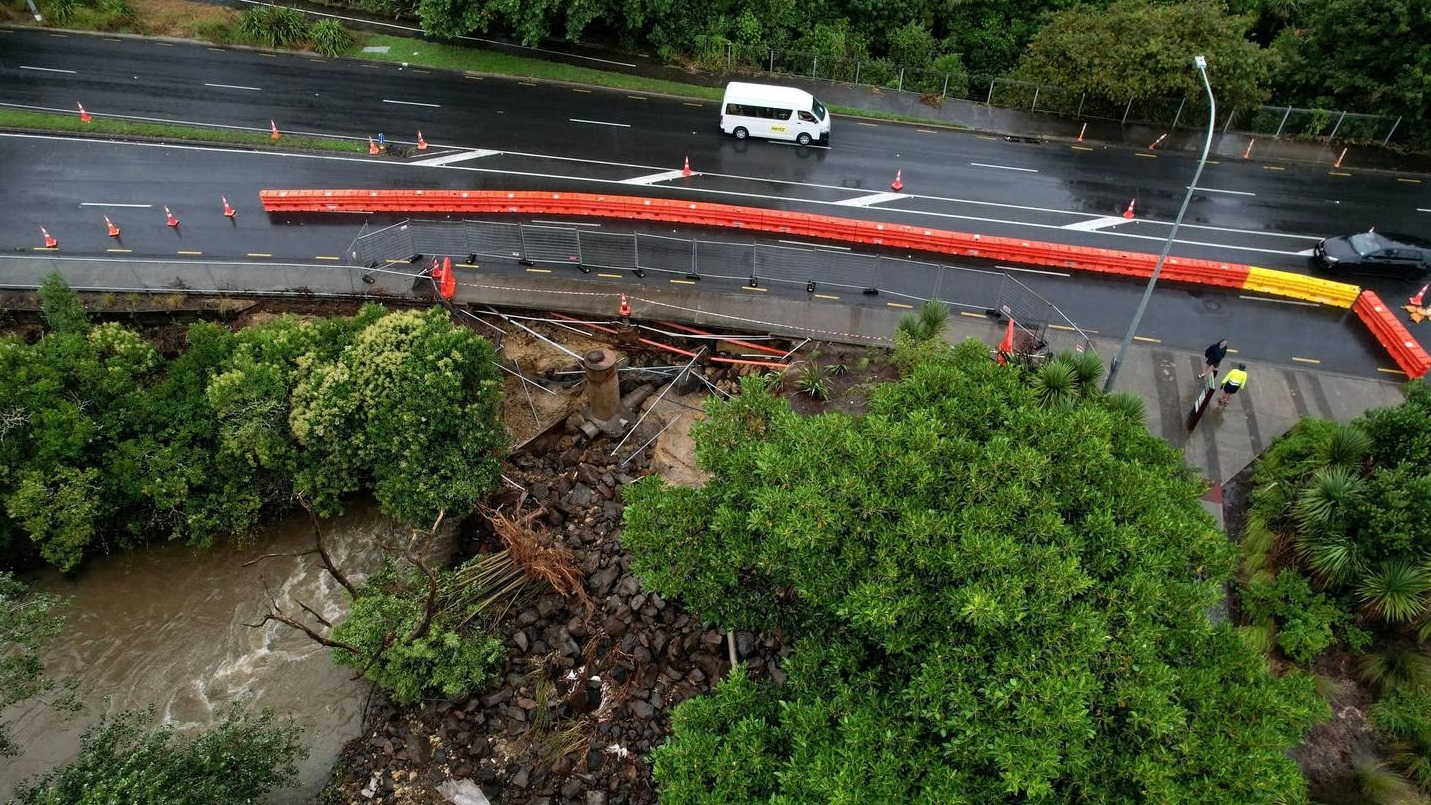
Waka Kotahi NZ Transport Agency uses money from the National Land Transport Programme to fund “emergency works” on state highways and local roads following an event like a storm. In the case of local roads, councils often chip in funding too.
That funding sat at $300 million for the period between 2021 and 2024, but Waka Kotahi said that even before the Auckland storms this figure was likely to be exceeded, thanks to the large number of expensive storms and the increasing cost of repairs.
“The cost of repairs and the required level of investment to recover from severe weather events is significant,” a spokesperson for Waka Kotahi said.
“Between 2018 and 2021, Waka Kotahi recorded seven events that resulted in costs between $15 million and $50 million, compared with two events of similar scale between 2013 and 2017.”
The funding for these repairs comes from money collected from petrol taxes and road user charges.
The Government’s decision to cut these taxes and charges over the last year means ordinary taxpayer funding is also used.
A spokesperson for Waka Kotahi said that the overspend in these areas could be funded from “areas where there is lower-than-forecast spend, short-term debt and/or by deferring works”.
They also said the overspend could be funded by a contribution from the Crown, meaning more money from general taxation.
Transport Minister Michael Wood said he was confident the Government could manage the cost of the clean-up.
“It is clear that there will be long-term impacts from this event on both local roads and the state highway network,” Wood said.
“Our Government is working with agencies across central government and local government and our network partners to understand the impacts and restore connections as soon as possible. We are committed to supporting the affected regions through this recovery. While it is too soon to say what impact these events will have on the National Land Transport Fund, I am confident that we will be able to manage them,” he said.
Green Party co-leader James Shaw said the figures showed the alarming effects of climate change and demonstrated the short-sightedness of the Government’s decision to extend fuel tax and road user charge subsidies.
“Here you have a Government agency warning ministers that it cannot keep up with the cost of more severe and frequent climate-related disasters - which all the models predict will keep happening - right at the very moment that the Government decides to short-change their budget to the tune of $1.3 billion per year with a poorly-targeted fossil fuel subsidy. It doesn’t make sense,” Shaw said.
“Auckland’s severe flooding is not the first - and will certainly not be the last - climate-fuelled disaster to hit Aotearoa. We simply must reprioritise: target cost-of-living support where it is needed the most, which is low-income households, and take urgent action to reduce climate emissions and adapt to the impacts of the climate crisis we know we cannot avoid,” he said.
National’s transport spokesman Simeon Brown said the Government needed to “focus transport spending on the core purposes of building and maintaining the roading network, rather than continuing to pour millions into pet light rail projects which are going nowhere under Labour”.












